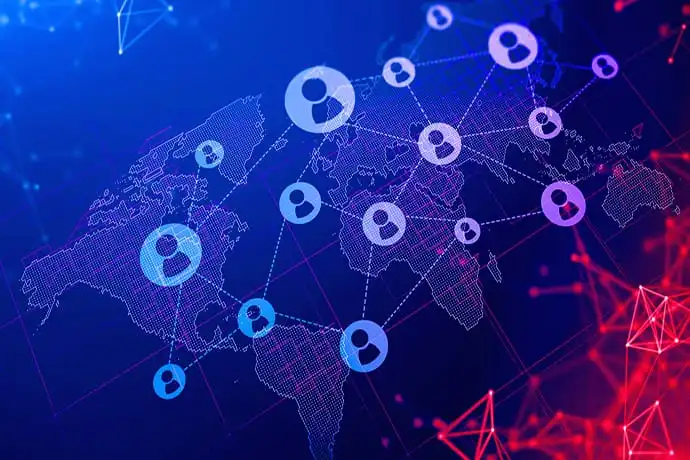What are DAOs?
Decentralized Autonomous Organizations, or DAOs, are a new type of digital organization that are run by code rather than people. They are built on blockchain technology, which is the same technology that powers cryptocurrencies like Bitcoin.
A DAO operates through smart contracts, which are self-executing contracts with the terms of the agreement between buyer and seller being directly written into lines of code. These contracts are stored on the blockchain and can be programmed to trigger automatically when certain conditions are met.
Decentralization
One of the key features of a DAO is that it is decentralized, meaning that it is not controlled by a single entity or group of individuals. Instead, decisions are made by the members of the organization, who have voting rights proportional to their stake in the organization. This allows for a more democratic form of decision-making and reduces the risk of a single point of failure.
Another important aspect of DAOs is that they are autonomous, which means that they can operate independently of any human intervention. This allows for more efficient and reliable decision-making, as well as the ability to operate 24/7 without the need for human oversight.
Workspaces
DAOs can be used for a variety of purposes, such as managing a cryptocurrency, funding open-source projects, or creating decentralized marketplaces. They also have the potential to be used in industries such as finance, real estate, and insurance.
Vulnerabilities
However, while DAOs offer many potential benefits, they also come with some challenges. One of the main challenges is that they are still a relatively new technology, and there is a lack of legal framework and regulation to govern their operations. Additionally, DAOs are vulnerable to hacking and other forms of cyber attacks, as well as the possibility of bugs or errors in the code.
In conclusion...
In conclusion, Decentralized Autonomous Organizations (DAOs) are a new kind of digital organization, built on blockchain technology, that operates through smart contracts, and are run by code rather than people. The key features of DAOs are they are decentralized and autonomous, allow more democratic form of decision-making, reduce the risk of a single point of failure, and can be used for a variety of purposes. However, DAOs also come with their own set of challenges such as the lack of legal framework and possibility of cyber attacks. As the technology matures, it will be interesting to see how DAOs will evolve and what kind of impact they will have on various industries.


